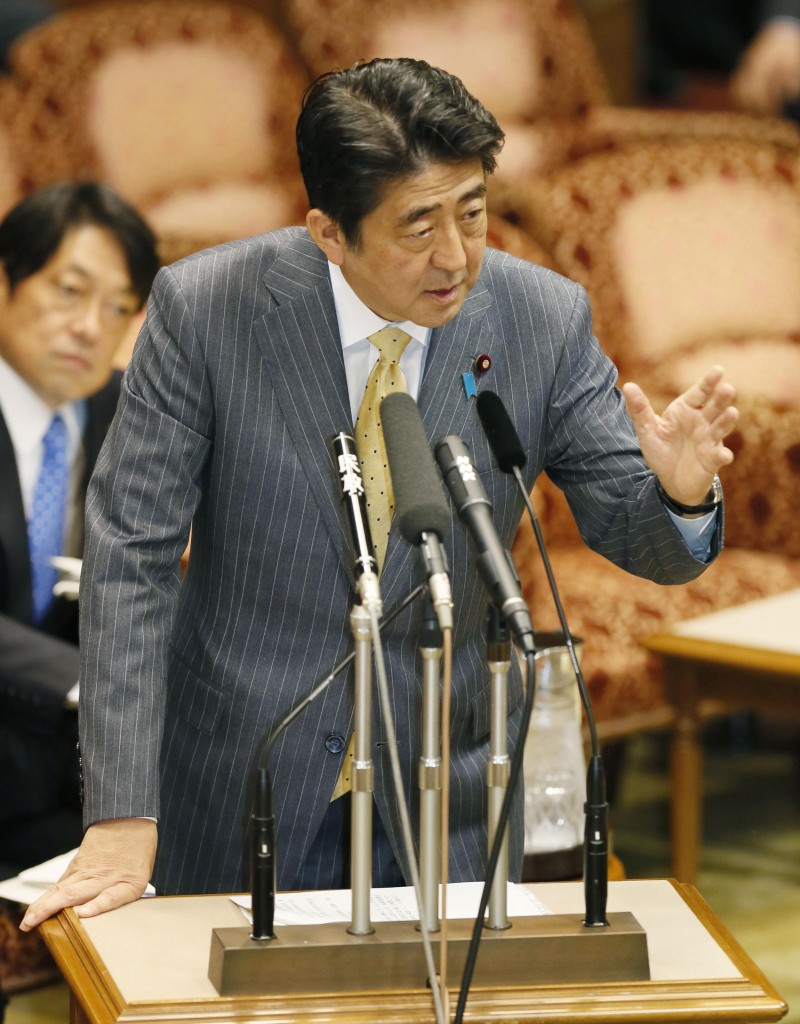- California Assembly OKs highest minimum wage in nation
- S. Korea unveils first graphic cigarette warnings
- US joins with South Korea, Japan in bid to deter North Korea
- LPGA golfer Chun In-gee finally back in action
- S. Korea won’t be top seed in final World Cup qualification round
- US men’s soccer misses 2nd straight Olympics
- US back on track in qualifying with 4-0 win over Guatemala
- High-intensity workout injuries spawn cottage industry
- CDC expands range of Zika mosquitoes into parts of Northeast
- Who knew? ‘The Walking Dead’ is helping families connect
‘Abe ordered sex slavery settlement by end of year’
By Kim Se-jeong
Korea and Japan are likely to hold a meeting of foreign ministers next week to discuss the issue of sex slavery of Korean women by Japan before and during World War II.
The expectations come after Japanese media reported that Japanese Prime Minister Shinzo Abe had orderd Foreign Minister Fumio Kishida, Thursday, to visit Korea by end of the year to resolve the issue.
Quoting an anonymous diplomatic source, the Nihon Keizai Shimbun said Abe wants a Dec. 28 meeting between Kishida and his Korean counterpart Yun Byung-se.
Seoul’s foreign ministry did not confirm the reports from Japan, but said, “Resolving the sex slavery issue has been the focal point of Korea-Japan diplomatic relations, particularly so this year, as the two celebrate the 50th anniversary of diplomatic ties. We will share more information when we have more details.”
Sex slavery has been a major impediment in bilateral relations between the two countries, preventing Abe and President Park Geun-hye from holding a summit until November this year.
According to other Japanese news outlets, Abe’s instruction came after a meeting with the foreign minister and his diplomatic advisors at his residence.
The announcement came one day after Korea’s Constitutional Court rejected a petition to review the Korea-Japan treaty in 1965 that the Japanese government cited when rejecting compensation claims by the daughter of a former Korean forced wartime laborer.
A week ago, the Seoul Central District Court acquitted a Sankei Shimbun bureau chief who was indicted over an article he wrote saying that President Park was absent from her office for seven hours on the day of the Sewol ferry disaster. More than 300, mostly high school students, died in the incident.
Thursday’s report gave cautious optimism that Korea-Japan relations have finally passed their darkest point.
Almost 200,000 women from Korea, China and other countries were forced by the Japanese military to provide sex for Japanese troops. Abe denied the military’s involvement, arguing the women were prostitutes, voluntarily joining brothels to make money. His argument was received with fierce condemnation in Korea. In Korea there are just 46 survivors from the sexual slavery.













![일본 사도광산 [서경덕 교수 제공. 재판매 및 DB 금지]](http://www.koreatimesus.com/wp-content/uploads/2024/07/PYH2024072610800050400_P4-copy-120x134.jpg)



Pingback: Korea, Japan FMs to meet over sex slaves Monday – Korea Times | Sex dating